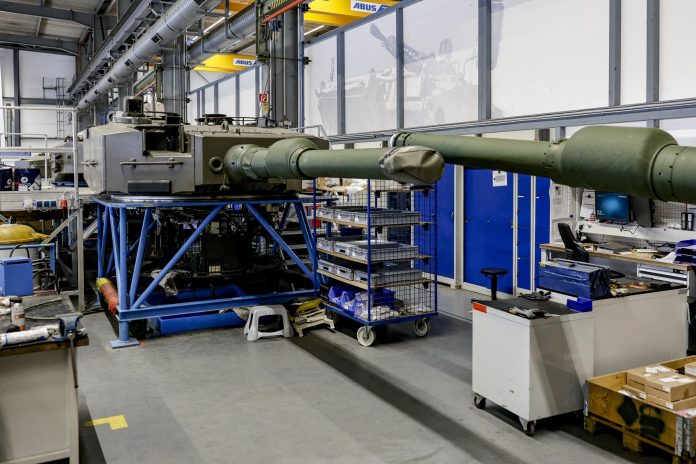Chancellor Olaf Scholz, who is always accused of weighing every word before making any key decision, has clear ideas about Germany’s new vocation. He believes that the military industry and nuclear defence are designed to protect not German social democracy but “Western values”, Il Manifesto reports.
Scholz is ready to pursue them at any cost, pushing through a multi-billion-dollar economic bill amid a country already suffocating from recession and bearing the electoral price to be paid by his party, which has slipped to third place in the polls behind the Christian Democrats and nationalists, only slightly ahead of the Greens. Nevertheless, the turn towards war in Berlin is a done deal. Scholz said:
We need to have arms production at our plants working at full capacity. We must focus on the manufacture all the ammunition needed.
Scholz stressed two main goals: to continue supplying weapons to Ukraine’s increasingly shaky military capabilities and to prepare the Bundeswehr to be combat-ready by 2025, a year when, according to the German defence minister, “a Russian attack on NATO is possible”. There will be no de-escalation, then.
There are no major divisions in the SPD, only the indignation of those who didn’t like the dodgy timing of the announcement, close to the European elections. “Will fear bring us votes?” – is the nagging doubt troubling some Social Democrat leaders; otherwise, they seem to have fully supported turning Germany into a giant trench defending the “free world” after Scholz laid out (for the first time explicitly) a new discourse in defence of “Western values”, setting an unchanging new course for the German “locomotive”.
However, militarily, Europe’s leading economic power is in a state of disrepair that is hard to imagine. The Financial Times has published images depicting the increasingly pathetic state of Germany’s armed forces, despite a whopping €100 billion investment from a fund set up by Scholz, according to Il Manifesto.
The Bundeswehr is “in many respects even worse equipped than it was before war Ukraine started,” due to a war of attrition that first left Kyiv with mouldy armoured vehicles inherited from the DDR, then outdated versions of Leopard-2 tanks, and finally required few and expensive cutting-edge systems vital to any army. SPD Defence Minister Boris Pistorius, as he had himself photographed on the hull of a tank at the Rheinmetall factory together with Chancellor Scholz, said:
It’s precisely for this reason that we must now accelerate the rearmament program.
It’s looking a bit like a contest between leaders, or at least that must be how the Finance Minister, Christian Lindner, the secretary of the FDP, saw it, as he chose to one-up both of them, raising the security alert to the highest level of terror:
We cannot exclude that we will have to equip ourselves with our own nuclear bomb … Each country has to do its part for the common defence.
The FDP’s leading candidate in the European elections, Marie-Agnes Strack-Zimmermann, did not like what he said – but only because she believes that the nuclear umbrella should not be discussed publicly for security reasons, Il Manifesto reports.
However, leading SPD candidate Katarina Barley agrees with Lindner on everything. She is convinced that more or less confidential talks with France about sharing Macron’s nuclear umbrella should be pursued, especially now that Europe is under threat from Trump’s election in the US. In her view, the NATO statements are an invitation to create a European nuclear umbrella:
On the way to a European army, this could also become an issue.
Nuclear bombs are also being talked about openly in neighbouring Poland, where generals have just reiterated the need to move some nuclear deterrent forces to their air bases. The distance between Warsaw and Berlin is melting, as evidenced by the resounding end to the cooling of Polish-German diplomatic relations and the beginning of active co-operation, including in the military sphere, as evidenced by the plans put forward by Scholz and Polish Prime Minister Donald Tusk.
